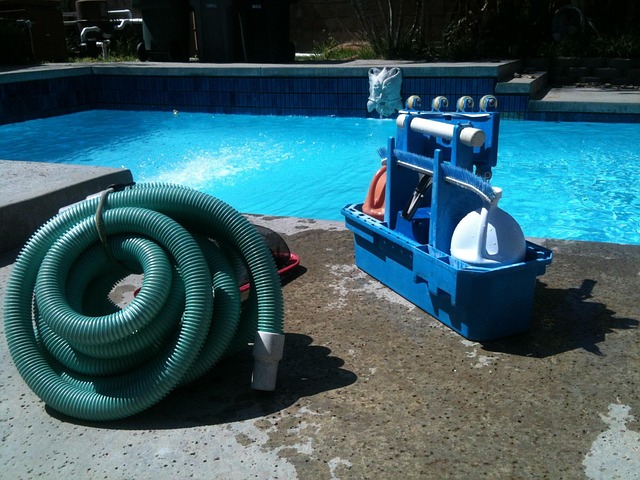Maintaining clean kitchen floors is essential for hygiene, safety, and home aesthetics. Regular cleaning prevents dirt, grease, and bacteria buildup, reduces slip hazards, and eliminates odors. Different flooring types require specific cleaning methods: tile & grout need deep cleaning, hardwood needs gentle care to avoid water damage, and vinyl benefits from regular vacuuming and chemical treatments.
Professional kitchen floor cleaners offer specialized knowledge and equipment for spotless results, saving time and effort. They handle tough stains, grease, and grime while preserving surfaces with eco-friendly products. Choosing the right cleaning products and tools (like microfibre mops) enhances efficiency and prevents damage. Deep cleaning involves sweeping, mixing cleaner with warm water, mopping from one corner to the exit, and scrubbing tough stains directly. Regular maintenance includes immediate spillage wiping, entryway mats, and quality floor sealers.
Avoid using harsh chemicals without ventilation, skipping pre-cleaning steps, or incorrect techniques like wet mopping unsealed floors. Educate yourself about your floor's care needs for optimal longevity and aesthetic appeal. Local kitchen floor cleaning experts provide customized solutions based on regional flooring types and eco-friendly products, ensuring sparkling finishes.
Looking for gleaming kitchen floors? Regular cleaning is essential to prevent buildup and maintain a hygienic space. This comprehensive guide explores the intricacies of kitchen floor cleaning, from understanding different flooring types to hiring professionals who can deliver exceptional results. We’ll walk you through choosing the right products, deep cleaning techniques, stain prevention tips, and common mistakes to avoid. Discover why local experts offer tailored solutions for a sparkling kitchen floor that impresses.
Understanding the Importance of Regular Kitchen Floor Cleaning

Keeping your kitchen floors clean is more than just maintaining a spotless space; it’s essential for hygiene and the overall well-being of your home. Kitchen floor cleaning is a crucial task as this area sees constant foot traffic and is often the center of daily meal preparation, making it susceptible to dirt, grease, and bacteria build-up. Regular cleaning not only prevents these hazardous elements from accumulating but also helps to preserve the appearance and longevity of your flooring.
A clean kitchen floor ensures that food particles and spills are promptly addressed, reducing the risk of slips and falls. It’s especially important for families with young children or elderly members who may be more prone to accidents. Moreover, regular cleaning can prevent odors from accumulating, keeping your kitchen fresh and inviting. By adopting a consistent kitchen floor cleaning routine, you contribute to a healthier living environment while also protecting your investment in flooring materials.
Types of Kitchen Floors and Their Unique Cleaning Needs

Kitchen floors come in various types, each with its own unique characteristics and cleaning requirements. From tile and grout to hardwood and vinyl, understanding these differences is crucial for effective kitchen floor cleaning. Tile and grout floors, common in many kitchens, require regular deep cleaning due to the porous nature of tiles and the trapped moisture in grout lines. Professional cleaners often use specialized tools and solutions to ensure no residue or bacteria remains, keeping the area hygienically clean.
On the other hand, hardwood floors demand a more delicate approach. These floors are susceptible to water damage and scratch-prone, necessitating regular sweeping and spot cleaning with pH-neutral mops. Avoid excessive moisture as it can lead to warping. Vinyl flooring, known for its durability and comfort, is typically easy to maintain. Regular vacuuming and occasional deep cleaning with appropriate chemicals ensure its longevity. Each floor type requires a specific cleaning method, making professional expertise invaluable for achieving spotless results that extend the life of these surfaces.
The Benefits of Hiring Professional Kitchen Floor Cleaners

Hiring professional kitchen floor cleaners offers numerous advantages for homeowners and businesses alike. In addition to ensuring a sparkling clean that can’t be matched by standard cleaning routines, professionals bring expertise and specialized equipment designed specifically for kitchen floors. This is particularly important in commercial kitchens where hygiene standards are paramount, and heavy foot traffic necessitates regular deep cleaning.
Professional cleaners know how to tackle tough stains, grease buildup, and grime without damaging floor surfaces. They use eco-friendly products that are safe for both your family and the environment. More importantly, they save you time and effort, allowing you to focus on running your business or enjoying your home, while ensuring your kitchen floors remain in pristine condition.
Choosing the Right Cleaning Products for Optimal Results
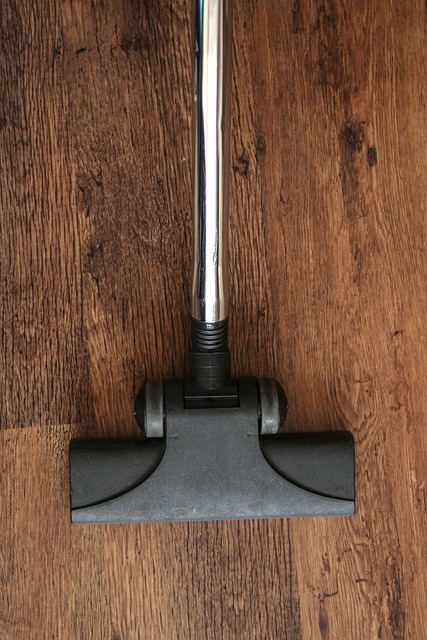
When it comes to kitchen floor cleaning, selecting the right products is key to achieving sparkling results and maintaining a hygienic environment. The market offers a wide array of cleaning options tailored for various floor types, from ceramic tiles to wood or vinyl. Opting for multi-purpose cleaners might seem convenient, but specialized products designed specifically for kitchen floors are often more effective due to their enhanced formulations that tackle grease, grime, and stubborn stains.
For optimal cleaning, consider using eco-friendly or natural-based cleaners, which not only ensure a deep clean but also contribute to a healthier living space by reducing exposure to harsh chemicals. Additionally, investing in floor-specific tools like microfibre mops or squeegees can significantly enhance the cleaning process by removing dirt and moisture efficiently, preventing water damage and ensuring faster drying times.
Step-by-Step Guide to Deep Cleaning Your Kitchen Floor
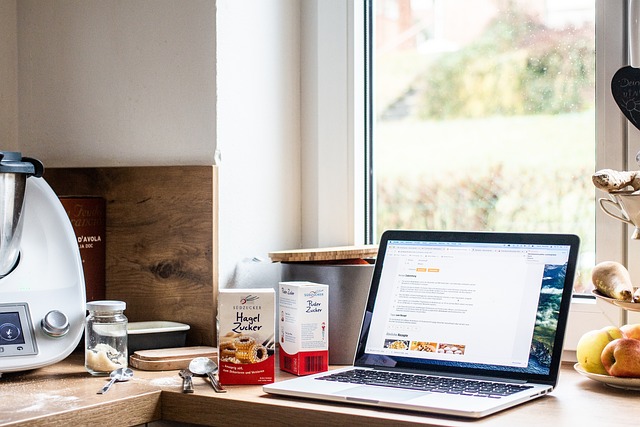
Deep cleaning your kitchen floor is a necessary task to maintain a hygiene and sparkling environment. Here’s a step-by-step guide to help you achieve that:
1. Preparation: Start by clearing all dishes, utensils, and appliances off the floor. Remove any furniture or obstacles to ensure easy access and movement around the space. Gather your cleaning supplies – a good quality kitchen floor cleaner, a mop, a bucket, and microfibre cloths.
2. Sweeping and Mopping: Sweep the floor to remove any loose dirt, dust, and debris. This initial step helps prevent scratching or damaging the floor while you clean. After sweeping, fill your bucket with warm water mixed with kitchen floor cleaner according to the manufacturer’s instructions. Dip your mop into the solution and wring out excess water to ensure it’s not dripping. Begin mopping from one corner of the room and work towards the exit, picking up any dirt or grime along the way. For tough stains, apply a small amount of cleaner directly onto the spot, scrub gently with a microfibre cloth, then rinse with clean water.
Tips for Preventing Stains and Maintaining a Sparkling Kitchen Floor
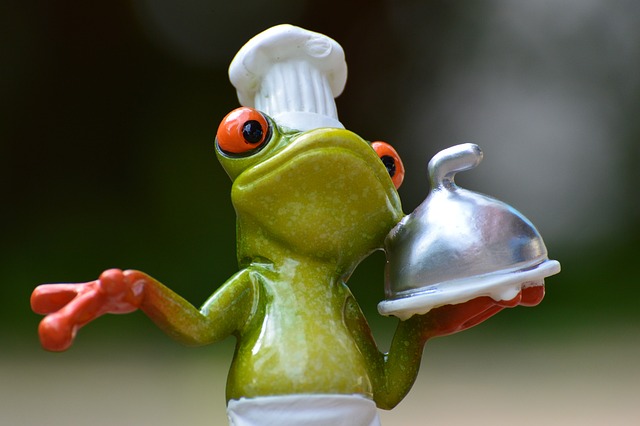
Regular cleaning is key to maintaining a sparkling kitchen floor and preventing stains. Start by wiping up spills immediately; even small amounts of liquid can set into the floor’s surface, causing difficult-to-remove stains. Additionally, consider using mats at entryways to trap dirt and moisture before they reach your floors.
For long-term protection, invest in a good quality floor sealer suitable for kitchen environments. This will create a protective barrier against stains and make cleaning easier. Regularly sweep or vacuum your kitchen floor to remove loose debris, and use a mild, pH-neutral cleaner when necessary. Avoid harsh chemicals that can damage the floor’s finish and always follow manufacturer instructions for proper application and dilution rates.
Common Mistakes to Avoid During Kitchen Floor Cleaning
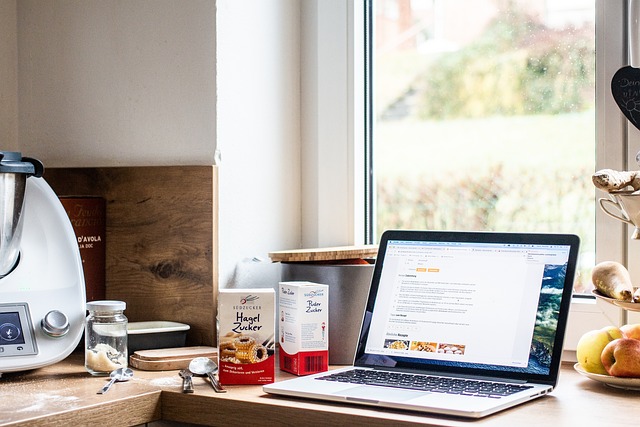
When it comes to kitchen floor cleaning, there are several common mistakes that homeowners often make, which can lead to inadequate sanitation or even damage to their floors. One of the biggest blunders is using harsh chemicals without proper ventilation, which can not only be dangerous but also ineffective for delicate floor surfaces. Another mistake is skipping the pre-cleaning step, where stubborn spills and dirt are removed before mopping. This can leave behind residue that makes it harder for cleaning solutions to penetrate and effectively remove germs.
Additionally, using the wrong tools or techniques can do more harm than good. For example, using a wet mop on unsealed floors may cause water damage over time. Similarly, aggressive scrubbing with abrasive materials can scratch the floor’s finish. It’s essential to understand that different flooring types require specific cleaning methods and products to maintain their longevity and aesthetic appeal. Therefore, educating yourself about your kitchen floor’s care needs is crucial before diving into the cleaning process.
The Role of Expertise in Achieving Struck-Out Results

When it comes to kitchen floor cleaning, expertise plays a pivotal role in achieving exceptional results. Professional cleaners understand that kitchen floors often face unique challenges—from sticky spills and grease buildup to heavy foot traffic and constant exposure to moisture. Their training equips them with specialized techniques tailored to different flooring types, ensuring no damage occurs during the cleaning process.
Expertise also allows for efficient use of products and equipment. Professionals know exactly what solutions and tools to employ based on the floor’s condition, resulting in a deep clean that leaves surfaces streak-free and refreshed. This level of knowledge guarantees that your kitchen floors not only look their best but remain so over time, enhancing the overall aesthetic and functionality of your space.
Why Local Experts Offer Superior Service and Customized Solutions
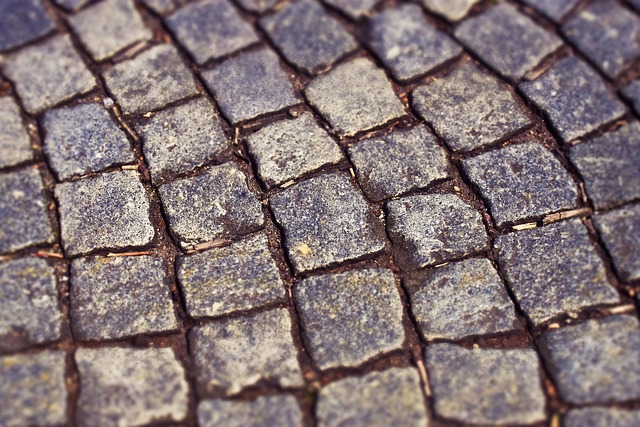
Local kitchen floor cleaning experts offer superior service and customized solutions because they understand the unique needs of their communities. By being rooted in specific areas, these professionals are well-acquainted with the various types of kitchen floors prevalent in the region—from tile and wood to vinyl and concrete. This localized knowledge enables them to tailor their services precisely to meet each client’s requirements.
Moreover, local experts often have deeper connections within the community, allowing them to source eco-friendly and high-quality cleaning products that might not be readily available elsewhere. Their personalized approach ensures a thorough understanding of your floor’s specific issues, whether it’s stain removal, deep cleaning, or routine maintenance. This level of customization results in floors that look new again, with a sparkle that reflects the care and expertise provided by local kitchen floor cleaning specialists.
